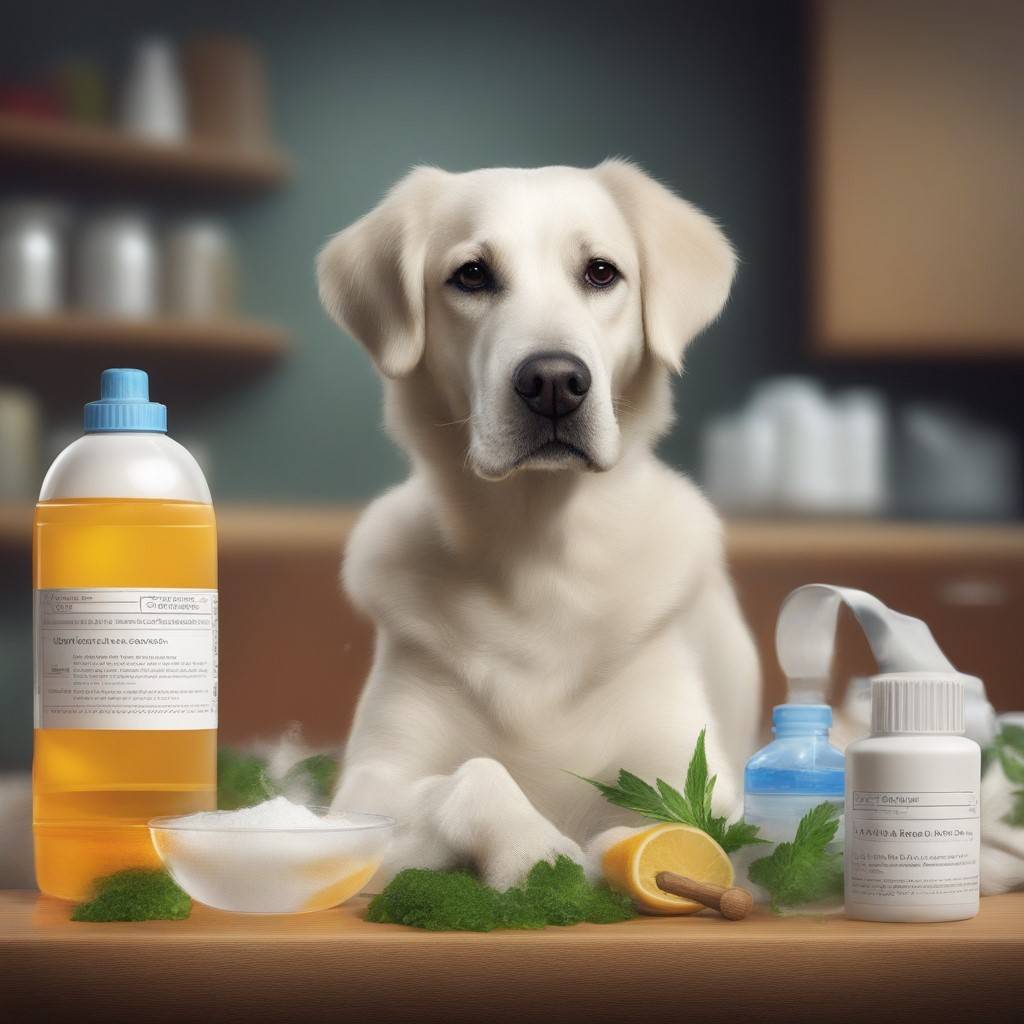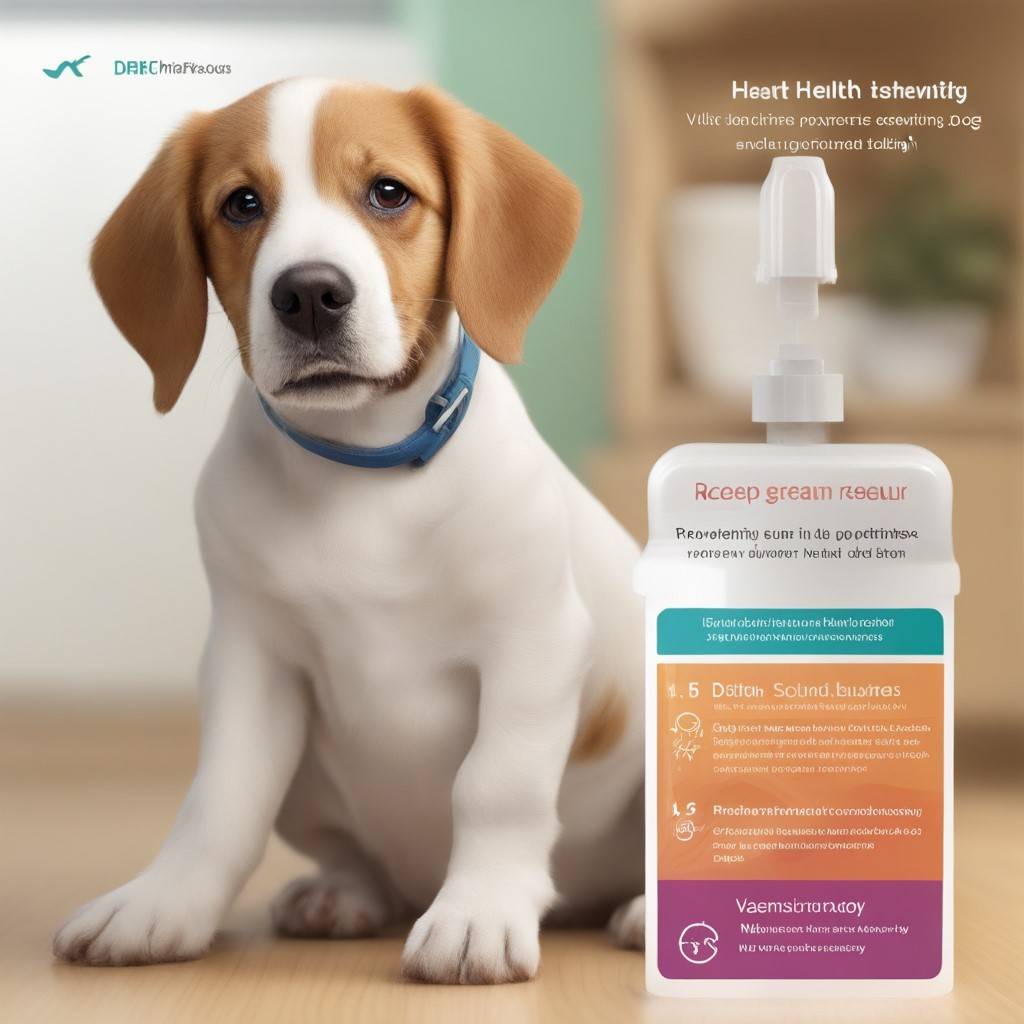Delve into the world of canine health with our comprehensive guide on managing dog diarrhea and vomiting. As devoted pet owners, understanding the causes and effective solutions for these common issues is essential. This detailed blog post provides expert insights, practical advice, and preventative measures to ensure your dog’s optimal well-being, fostering a healthier and happier life for your cherished companion.
Understanding Dog Diarrhea and Vomiting
In the world of pet health, few issues are as common and concerning as dog diarrhea and vomiting. These symptoms can indicate a range of potential health problems, causing distress for both pets and their owners. But fear not! This comprehensive guide is here to equip pet owners with the knowledge and tools they need to understand, manage, and prevent these issues, ensuring the wellness and happiness of their beloved canine companions.
What Causes Dog Diarrhea and Vomiting?
Several key factors contribute to dog diarrhea and vomiting:
- Dietary Indiscretion: When dogs consume inappropriate food or garbage, it can upset their stomachs.
- Infections: Bacterial, viral, or parasitic infections are common culprits.
- Parasites: Worms or other intestinal parasites can cause gastrointestinal distress.
- Chronic Diseases: Conditions like inflammatory bowel disease, and liver or kidney disease can contribute to these symptoms.
Signs to Look Out For
To identify dog diarrhea and vomiting, keep an eye out for the following signs:
- Frequency and consistency: Frequent, loose, or watery stools are a clear indication.
- Accompanying Symptoms: Lethargy, loss of appetite, and fever may accompany these gastrointestinal issues.
- Dehydration Signs: Keep an eye out for dry gums, lethargy, and sunken eyes, as they can indicate dehydration.
When to Be Concerned
If your dog experiences persistent or severe symptoms, seeking immediate veterinary attention is crucial. Early intervention can prevent complications and lead to a faster recovery for your furry friend.
Diagnosing the Dog Diarrhea and Vomiting

When to Visit the Vet
It’s important to consult a veterinarian if:
- Symptoms persist for more than 24 hours.
- There are signs of blood in vomit or stool.
- Your dog shows signs of severe dehydration or lethargy.
Diagnostic Tests
Veterinarians may recommend the following tests:
- Blood Tests: These tests help check for infections and evaluate organ function.
- Fecal Examinations: This examination helps identify parasites or bacterial overgrowth.
- Imaging Tests: X-rays or ultrasounds may be necessary to visualize the internal organs.
Dog Diarrhea and Vomiting Treatment Options
Home Remedies and First Aid for Dog Diarrhea and Vomiting

There are a few remedies and first-aid measures you can try at home:
- Dietary Changes: Offer bland, easily digestible foods such as boiled chicken and rice to soothe your dog’s upset stomach.
- Hydration: Ensure your dog has constant access to clean water to prevent dehydration.
Medical Treatments
In some cases, medical treatments may be necessary. These can include:
- Medications: Anti-nausea drugs, antibiotics, or wormers may be prescribed based on the underlying cause.
- Dietary Management: Special prescription diets can benefit dogs with sensitive stomachs or chronic conditions.
Dog Diarrhea and Vomiting Prevention and Long-Term Care

Preventing Diarrhea and Vomiting
Taking preventive measures can help minimize the occurrence of dog diarrhea and vomiting:
- Regular Check-Ups: Schedule regular veterinary visits for early detection of potential health issues.
- Vaccinations: Stay updated with vaccinations to protect your dog from common infections.
- Diet Management: Provide a consistent, high-quality diet that suits your dog’s specific needs.
Importance of Regular Veterinary Care
Regular veterinary visits are crucial, especially for senior dogs or those with chronic conditions. These visits help with the early detection and management of health issues, ensuring your dog’s well-being.
Special Considerations
Diarrhea and Vomiting in Puppies
Puppies are more vulnerable to gastrointestinal issues due to their developing immune systems. Take special care by:
- Seeking immediate veterinary attention for puppies, as they can dehydrate quickly.
- Regularly deworming puppies as recommended by a vet to control parasites.
- Keeping their vaccinations up to date to prevent common infections.
Chronic Conditions and Senior Dogs
Senior dogs often have underlying health issues that can worsen diarrhea and vomiting. Manage older dogs by:
- Scheduling regular health screenings to identify and treat chronic conditions early.
- Adjusting their diet to accommodate senior-specific needs, which are gentler on the stomach.
- Monitoring changes in appetite, behavior, or stool consistency closely.
Nutritional Aspects
Diet’s Role in Managing Dog Diarrhea and Vomiting
Choosing the right diet significantly affects a dog’s recovery and overall gastrointestinal health. Keep the following in mind:
- A balanced diet is essential to maintain gut health.
- Choose easily digestible foods like boiled chicken, pumpkin, and rice.
- Avoid high-fat foods, dairy, spicy foods, and any known allergens.
FAQs and Common Misconceptions for Dog Diarrhea and Vomiting
Answering Common Questions
Let’s address some frequently asked questions to clear up any misconceptions or concerns you may have:
What should I do if my dog has diarrhea and vomiting?
If your dog is experiencing both diarrhea and vomiting, it’s important to closely monitor them. Initially, withhold food for 12-24 hours to allow their stomach to settle. Make sure they have access to clean water to prevent dehydration. If the symptoms persist beyond 24 hours or if you notice blood in their vomit or stool, it’s time to visit the vet.
What home remedy is good for dogs with vomiting and diarrhea?
A bland diet is often recommended to soothe your dog’s upset stomach. Try boiled chicken (without skin and bones) and white rice as they are gentle on the stomach and help firm up their stool. Start with small, frequent portions of this food. If your dog tolerates it well, gradually reintroduce their regular diet.
Should I give my dog water after vomiting and diarrhea?
Yes, it’s crucial to keep your dog hydrated. However, offer water in small amounts gradually. Drinking too quickly or too much water may trigger more vomiting. If your dog can’t keep water down, it’s a sign to seek veterinary care.
What is the first aid treatment for vomiting and diarrhea in dogs?
At home, you can provide first aid by fasting your dog for 12-24 hours, ensuring they remain hydrated, and watching their behavior. After fasting, introduce a bland diet and offer small sips of water. If your dog continues to exhibit signs of lethargy, continuous vomiting, or diarrhea, it’s time to consult your veterinarian.
What can quickly alleviate diarrhea in dogs?
For quick relief, a bland diet is your first line of defense. Boiled chicken and rice can help alleviate diarrhea. Over-the-counter medications like Pepto-Bismol may be used for dogs, but it’s important to consult your vet before giving any medication. Persistent diarrhea requires veterinary attention to address underlying causes.
Are there natural remedies for fast diarrhea relief in dogs?
Natural remedies can include feeding a bland diet, ensuring proper hydration, and adding probiotics or plain pumpkins to their meals. These methods can help soothe your dog’s stomach and firm up their stool. However, if diarrhea continues, it’s important to consult your vet as it could be a sign of a more serious issue.
Clearing Up Misconceptions
Let’s address some common misconceptions surrounding dog diarrhea and vomiting:
- Misconception: “All diarrhea is caused by the dog’s diet. “While diet can contribute, it’s essential to remember that infections, stress, and underlying health conditions can also play a role in diarrhea.
- Misconception: “Vomiting always means the dog is seriously ill. “Occasional vomiting can be considered normal, but persistent or severe vomiting is a cause for concern and requires veterinary attention.
Wrap Up
Understanding and effectively managing dog diarrhea and vomiting is crucial for your pet’s overall wellness. You can make a significant difference in their well-being by prioritizing regular veterinary care, implementing appropriate dietary management, and promptly addressing any changes in your dog’s health. Remember, being informed and proactive is key to ensuring the health and happiness of your furry companion.



